Finley Boden: Parents murdered baby placed back into their care
- Published
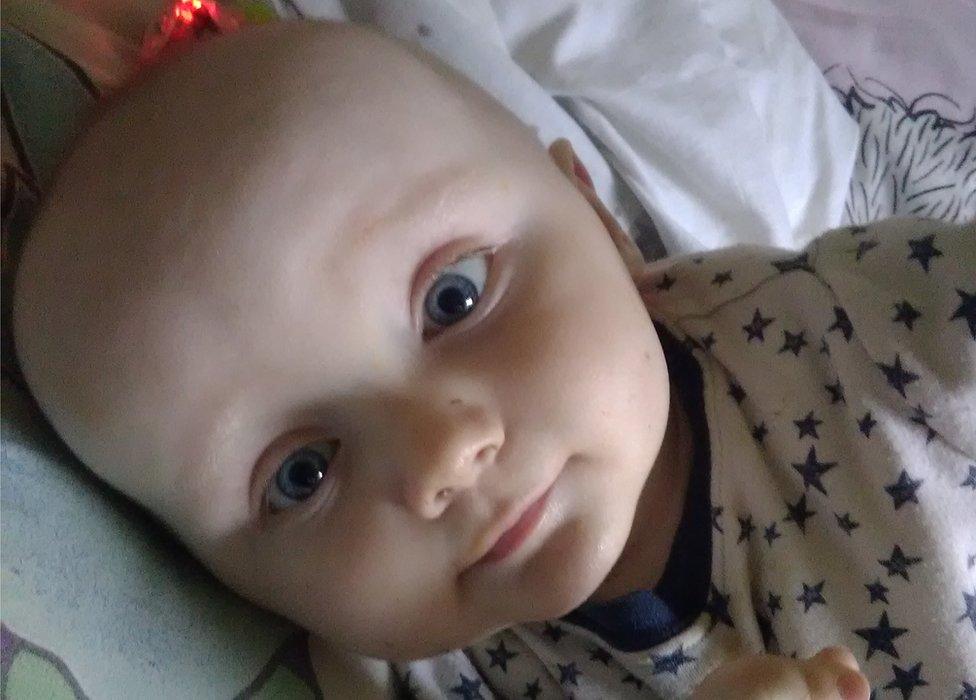
Finley Boden was 10 months old when he was murdered on Christmas Day in 2020
The parents of a 10-month-old boy have been convicted of murdering him - 39 days after he was placed back into their care.
Stephen Boden and partner Shannon Marsden killed Finley Boden, who died on Christmas Day in 2020.
Finley was found to have suffered 130 "appalling" injuries.
A jury found the pair, from Chesterfield, Derbyshire, guilty of murder following a trial at Derby Crown Court on Friday.
They will be sentenced on 26 May.
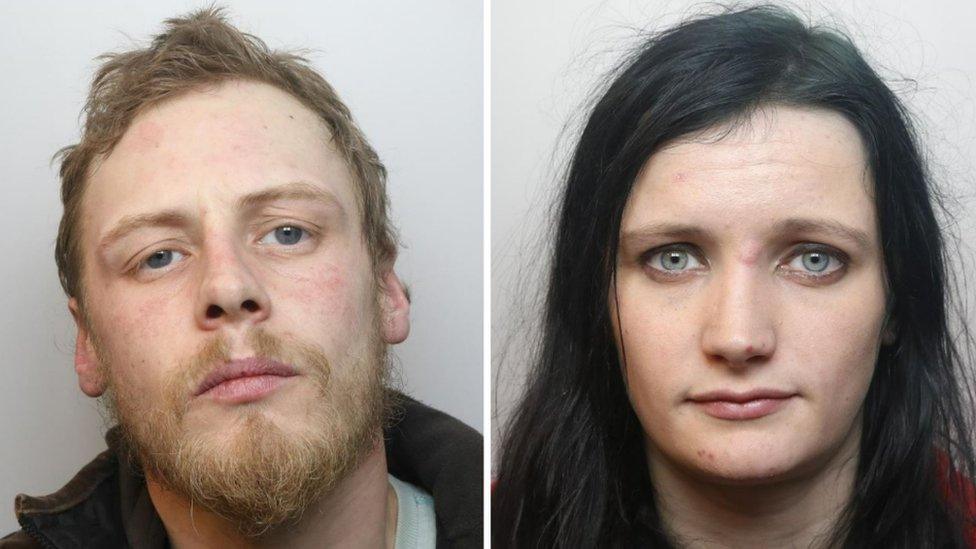
Stephen Boden and Shannon Marsden were convicted at Derby Crown Court
The couple were responsible for what the court heard was the "savage and brutal" murder of their son after burning and beating him in repeated acts of violence.
Finley's injuries included 57 breaks to his bones, 71 bruises and two burns on his left hand - one "from a hot, flat surface", the other probably "from a cigarette lighter flame".
He collapsed after suffering a cardiac arrest at the family's "cluttered" and filthy terraced home in Holland Road, Old Whittington - with faeces later found in the bedroom.
Paramedics were called there in the early hours of Christmas Day and Finley was taken to hospital, where he was later pronounced dead.
When the verdicts were read out, Stephen Boden and Shannon Marsden showed no reaction.
Judge Mrs Justice Amanda Tipples held back tears as she addressed the jury and thanked them for their "extremely impressive" conduct throughout the trial.
As she spoke, at least four jury members were in tears, and all were excused from taking part in jury service again for life, due to the distressing nature of the case.
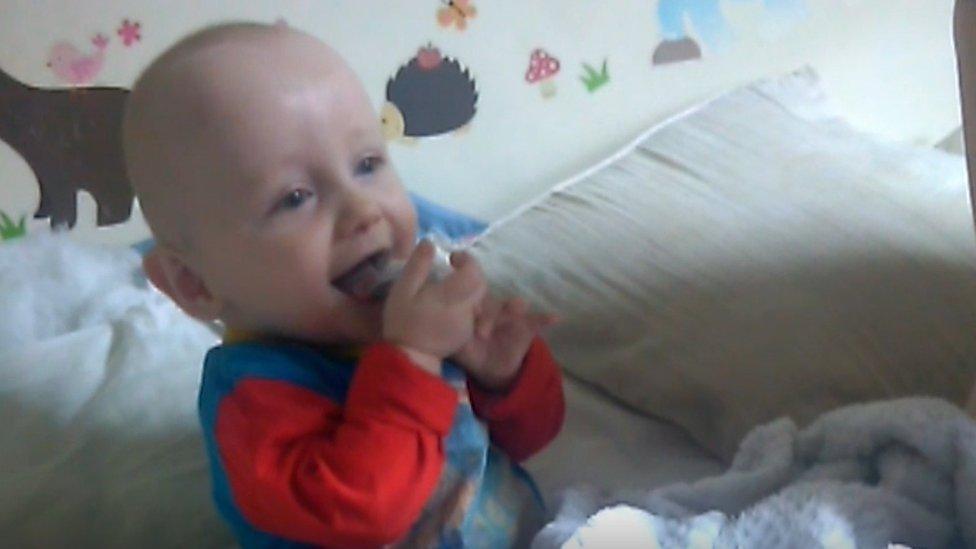
Finley, pictured on 30 November 2020, less than four weeks before he was killed
Child protection concerns meant Finley was taken from his parents shortly after he was born in February 2020.
But later that year, he was returned to their care through a court order following an eight-week transition, despite social workers asking for a six-month period.
The court heard the pair worked together to keep professionals away from Finley to protect each other and to cover up serious violence.
This included cancelling a health visitor appointment two days before he died and telling social services when they arrived unannounced that Finley may have Covid-19 and refusing to let them in.
A child safeguarding review into the circumstances surrounding Finley's death is currently under way.
A spokeswoman for Derbyshire County Council said it would be "fully engaged" with the independent review, adding it would "not be appropriate" to comment further until it was complete.
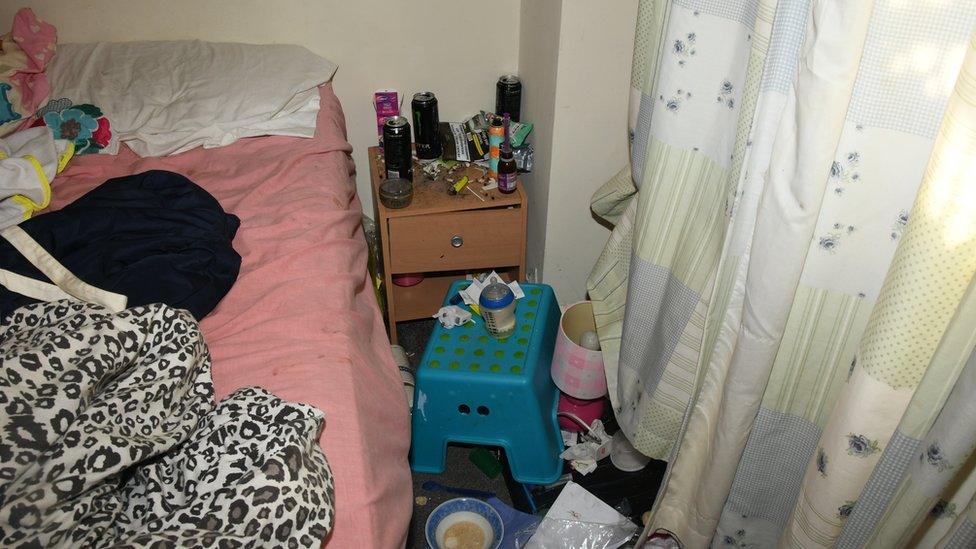
Police described the conditions Finley was living in as "filthy"
The court heard both Boden, 30, and Marsden, 22, were regular and heavy users of cannabis, who prioritised getting money to spend on the drug over their son's care.
Toxicology tests showed cannabis was found in Finley's blood, indicating that he must have inhaled smoke in the 24 hours before his death, the court was told.
The court was shown text messages sent from the couple's shared mobile phone - with jurors told the author of each message was not always clear.
In one message to a contact saved as "Smokey J" at 12:39 GMT on 23 December 2020, the author said the "little one" had "kept me up all night".
The message added: "I want to bounce him off the walls. Haha."
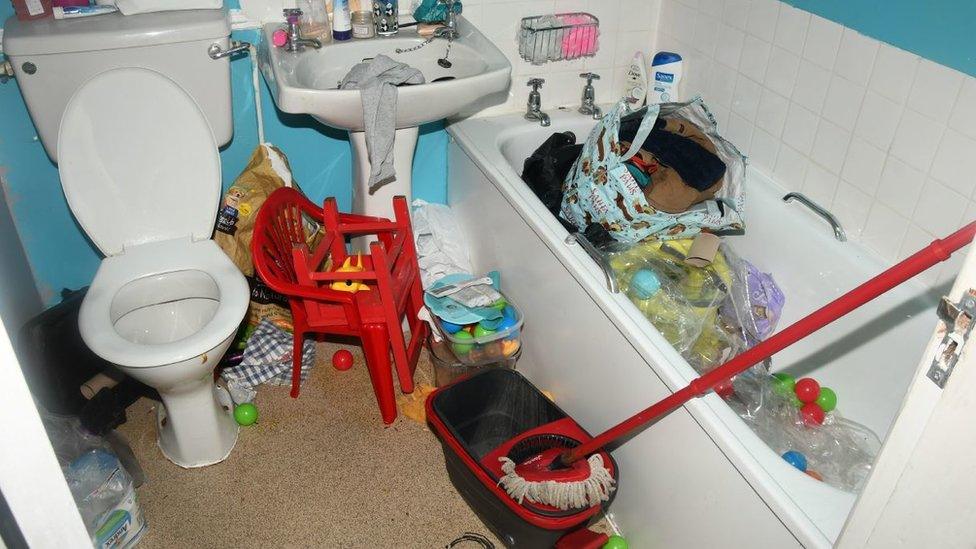
Police documented the state of the home Finley was living in as part of their investigation
After Finley died, Boden was heard telling Marsden at hospital he was going to sell Finley's pushchair "on eBay" - but later told police he only said it "in an effort to lighten the mood".
Prosecutor Mary Prior KC said Boden later told a relative that Finley had been crying, so "in his words, he 'shook him a little bit'".
But she added Marsden, visiting Finley's body in a hospital chapel of rest on 11 January 2021, said: "His dad's battered him to death. I didn't protect him."
Boden had claimed the family dog may have "jumped on" his son, inflicting broken ribs, while a tear to the inside of Finley's mouth - likely caused by a dummy being rammed in - was blamed on the child hitting himself with a rattle.
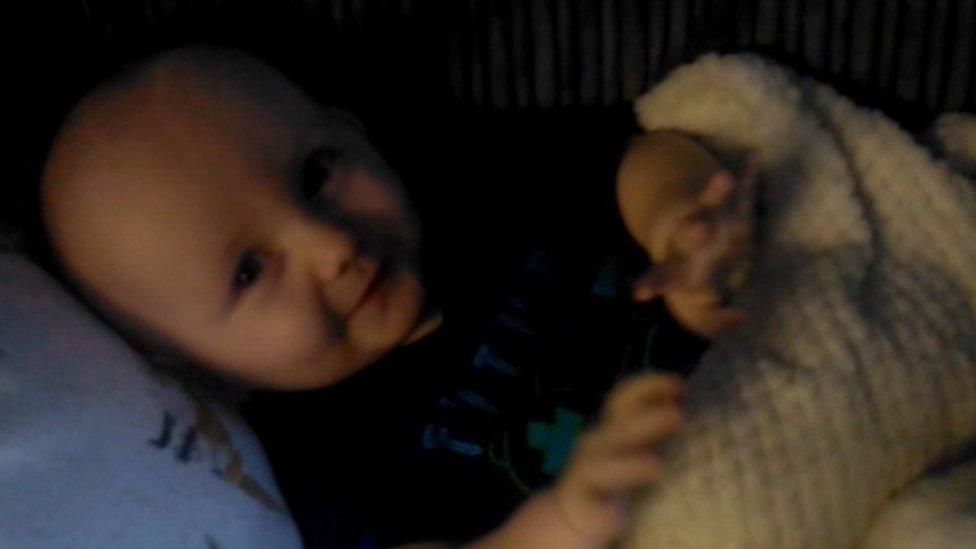
A child safeguarding review into the circumstances surrounding Finley's death is currently under way
Det Insp Stephen Shaw, who led the police investigation, said: "Finley Boden died in what should have been the safest place in the world for him - his own home.
"No verdict or jail sentence will bring Finley back, however, we now know the truth of what happened to him, and justice has been delivered."

Analysis
By Mark Easton, BBC Home Editor
Such tragedies almost defy comprehension but it may shock people to learn that the most likely age to be murdered in England and Wales is in the very first year of life.
On average 20 children under one are the victims of homicide each year. Each death results in an official review of what went wrong and then, as anguish over cases builds, a formal inquiry is launched.
Three such inquiries into children's social care in England reported back last year. All three came to similar conclusions - the system needed a radical overhaul.
Two months ago, the government responded - agreeing that children's social care did need a "major reset".
A consultation document was published by the Department for Education in February entitled 'Stable Homes, Built on Love'. It wrote of the need for phased reform, laying foundations, setting the direction for change, bringing forward new legislation subject to parliamentary time.
Critics noted the £200m investment promised over the next two years is just a fifth of the billion pounds the government-commissioned inquiry into child social care in England had recommended. Some professionals lamented the lengthy timescale for reform.
There is general agreement that what is needed is effective multi-agency support for vulnerable children and their families. Inquiries have been trying to achieve that for decades.
This awful case adds to the anguish at society's inability to protect its most defenceless citizens.

Sir Peter Wanless, chief executive of the NSPCC, added: "It is deeply harrowing and difficult to comprehend the suffering that Finley experienced leading up to his death, inflicted by the very people who should have been caring for him and protecting him from harm.
"The death of a child in such brutal circumstances leaves many of us asking questions and we await the child safeguarding practice review to provide answers as soon as possible."

Follow BBC East Midlands on Facebook, external, on Twitter, external, or on Instagram, external. Send your story ideas to eastmidsnews@bbc.co.uk, external.
Related topics
- Published7 March 2023
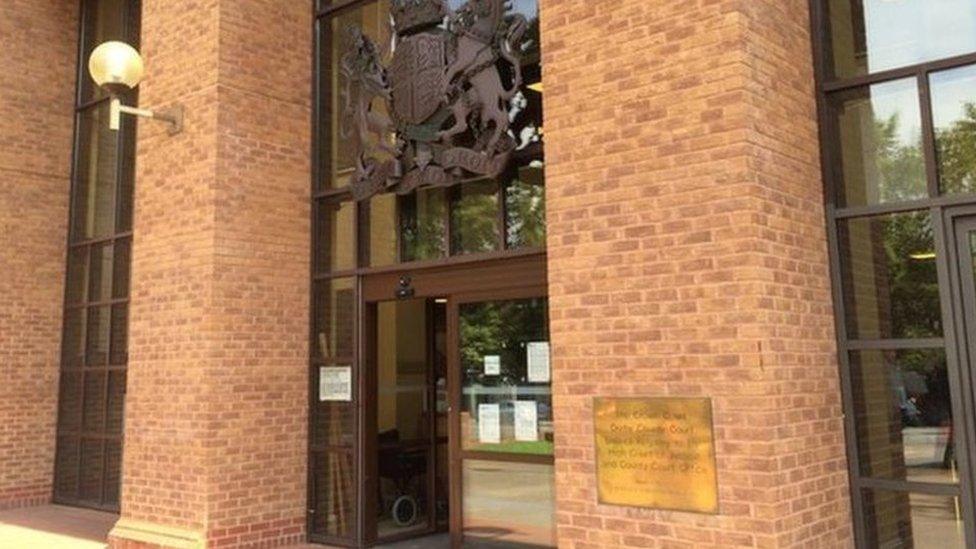
- Published30 January 2023
